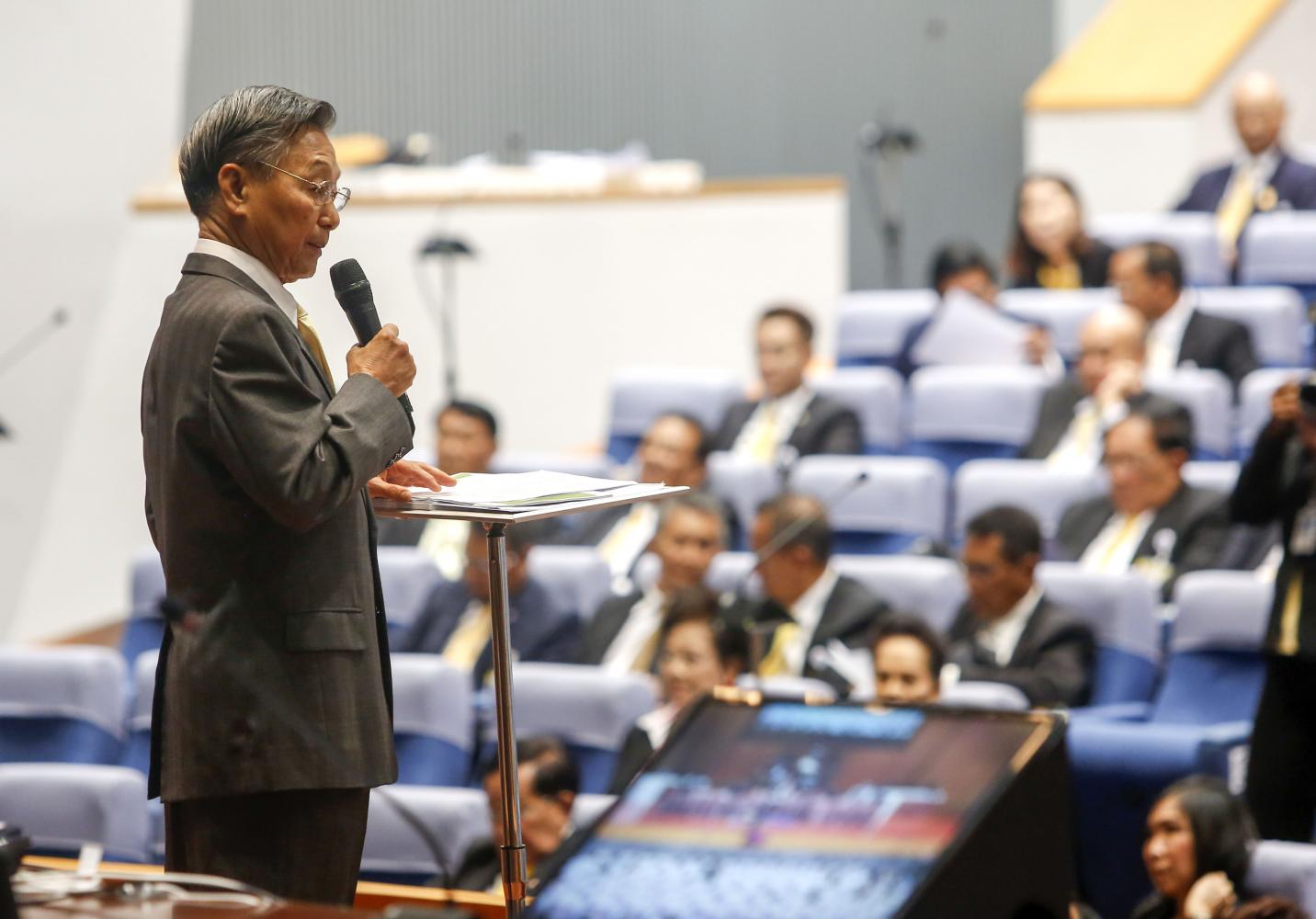
House Speaker Chuan Leekpai has warned the 500 newly elected MPs to behave themselves and not to repeat the misbehaviour of lawmakers of the past.
His comments were aimed in particular at poorly behaved ex-MPs who have now made a return to parliament. Inappropriate behaviour he alluded to on Thursday includes failing to pay for air tickets, and keeping pilots and other passengers waiting after being late for flights.
Some airlines have written in to demand the current parliament force the errant lawmaker debtors to pay up, he said. Thai Airways International, AirAsia, and Nok Air have sent letters to parliament, Mr Chuan said.
The former MPs abused their right to travel first but then paid later or not at all, Mr Chuan said.
He said he had been told that certain individuals owed tens of thousands of baht for air tickets while for others the amounts stood in the hundreds of thousands of baht.
The House speaker made the remarks as he presided over the opening of a seminar on the role of the 500 MPs and the support and services provided by the secretariat of the House of Representatives.
He told the new MPs at the seminar to follow the code of ethics for parliamentarians.
Mr Chuan also said that failure to pay debts could be in breach of the code of ethics for politicians.
"Everyone needs to be sure this does not happen to yourselves. In the future, if you are nominated for a ministerial post and someone later announces that you have not yet paid an air ticket debt you owe, you could be grilled in a censure debate and be investigated for breaching the code of ethics," Mr Chuan said.
He added that pilots had told him that some former MPs who were running late for flights ordered the plane and all its passengers to wait for them.
Some called the House secretary-general early in the morning to complain that they missed a flight as they were not allowed to board after arriving late, Mr Chuan said, before adding there had been cases in which former MPs booked flights, but failed to check in without giving prior notice of cancellation.
Mr Chuan highlighted instances of those former MPs allowing others to use their right to free travel on trains and buses.
During travel, an MP who is the holder of the free travel card can be accompanied by a personal aide but the aide cannot use the card while alone. This also applies to bus travel, Mr Chuan said.
Allowing their personal aides to use the free travel cards could be regarded as falsifying a document, Mr Chuan said.
"This must not happen to the 500 new members of the House of Representatives. When the tenure of this House expires, I hope that no one will demand that parliament forks out to pay debts," he added.
He also cited past cases of MPs skipping assignments during their study trips abroad, going out shopping instead.
"Don't be a disgrace to the Thai parliament and don't make those who voted for you feel regret. You should not act like immature persons," said Mr Chuan, a former prime minister and veteran MP of the Democrat Party, which is aligned with the coalition led by the Palang Pracharath Party (PPRP).
Addressing the legislative role of the new MPs from coalition parties, Mr Chuan stressed the need for them to be disciplined and not to miss parliamentary sessions to deliberate key legislative bills such as the budget bill.
He said this was because of the slim majority the coalition government led by the PPRP has in the House.
The new government will not survive if it loses votes for such important bills, Mr Chuan added.
Mr Chuan also said numerous interpellations -- questions that are formally asked of a government minister in parliament -- have been raised, but many were worded incorrectly.
MPs who put forward the questions will be asked to rewrite them, he said, adding that interpellations must deal with important national matters, not local problems which can be handled by local bodies.